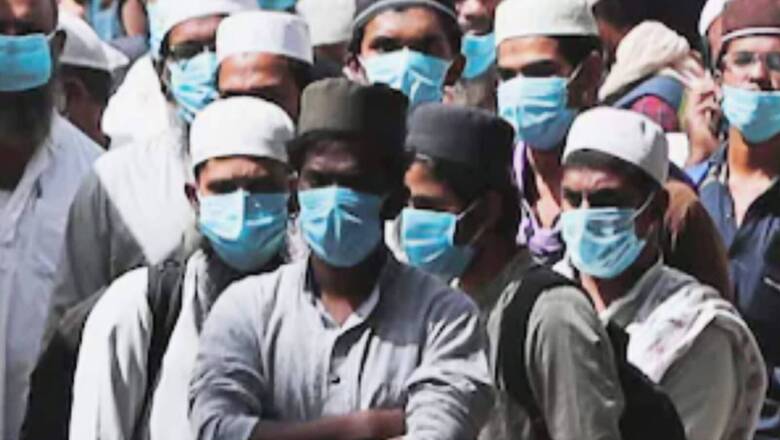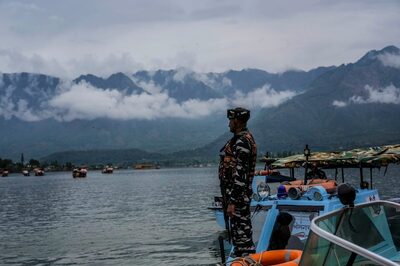
views
The transnational Sunni Islamic missionary movement Tablighi Jamaat poses a threat to India and the entire world, top intelligence sources told CNN-News18 on Wednesday. The organisation is representative of jihadi ideologue Abu Musab al-Suri and its aim is to be an ideal global jihadi network, they said.
Tablighi Jamaat is a leaderless, autonomous movement of believers with a singular objective of establishing a global Islamic order. Terrorist groups such as al-Qaeda and ISIS have lost much of their influence and power under the onslaught of a long global offensive campaign. But Tablighi Jamaat has remained unaffected.
The organisation is still facilitating recruitment drives for jihadi groups like ISIS, indoctrinating millions of its members in different parts of the world, according to the sources. They are disaffected youth, allied with rogue nations like Pakistan.
They are also aiding terrorist groups to launch attacks against state forces like in Marawi, the Philippines.
The group has been banned in several countries including Russia.
The Jamaat continues to operate freely in more than 200 countries, in collusion with other Salafist organisations.
According to the intelligence sources, Tablighi Jamaat is the world’s biggest manpower pool for the next wave of jihad.
The organisation is geared to make it an invisible but effective vehicle for achieving its ultimate goal in the near future.
Amorphous
Tablighi Jamaat is composed of small, autonomous cells spread throughout the Islamic world. These cells have little interaction with each other and the central leadership is irrelevant to their regular operations.
The group comes closer to al-Suri’s ideal jihadi group – one which has no structure at all.
The Jamaat does have an informal framework of nodes and modules based on madrassa ties, kinship networks and shared dedication to the mission’s objective. There are outlying mosques and learning centres or markaz, which are led by an amir or leader, selected through mutual discussion. These units oversee the functioning of other mosques and learning centres in a particular neighbourhood, town or village.
Organisers of these units are required to meet once every Thursday where the shura or council of seniors (elders) discusses programmes and activities of the units and conveys the information to the shura at the headquarters.
Such an organisational structure has inherent advantages, say the sources – it is difficult to investigate. It is easier to maintain secrecy and allows the leadership to feign ignorance about the presence of militants among the visitors or surreptitious recruitment drives that take place at every congregation in Raiwind, Tongi (Bangladesh) and other major Tablighi centres.
It also offers a convenient cover for various militant and extremist groups to utilise the services provided by the Tablighi Jamaat.
These capabilities have helped the organisation in the past to establish its presence in a large number of countries.
This kind of structure will also aid its growth in the future as well, particularly because Muslim communities across the world are confronted with grimmer challenges of violence, poverty and displacement.
The possibility of Islamic militancy rising from the ranks of Tablighi Jamaat members becomes quite high compared to the past, say the sources. The only question that has no clear answer today is whether the group would get directly involved in terrorist activities or work as a proxy.
Threat to India
In India, the Tablighi Jamaat has a considerable presence with members running into a few million. The annual ijtema (congregation) at Bhopal attracts at least a million visitors. The organisation’s headquarters at Nizamuddin, Delhi, controls a large number of centres in different parts of the world.
After the split in the leadership, several centres in the US, UK, Europe and South East Asia are controlled by the Raiwind markaz.
Much of the threat from Tablighi Jamaat emanates from the Raiwind markaz patronised by the Pakistan establishment as well as Wahhabi-Salafi oriented donors from Pakistan, Saudi Arabia and Gulf countries.
The organisation’s involvement in radicalisation, jihadi recruitment and violence in India has been discovered in the past.
The sources say Tablighi Jamaat is likely to become deeper and more extensive in the near future.
Read all the Latest News here



















Comments
0 comment